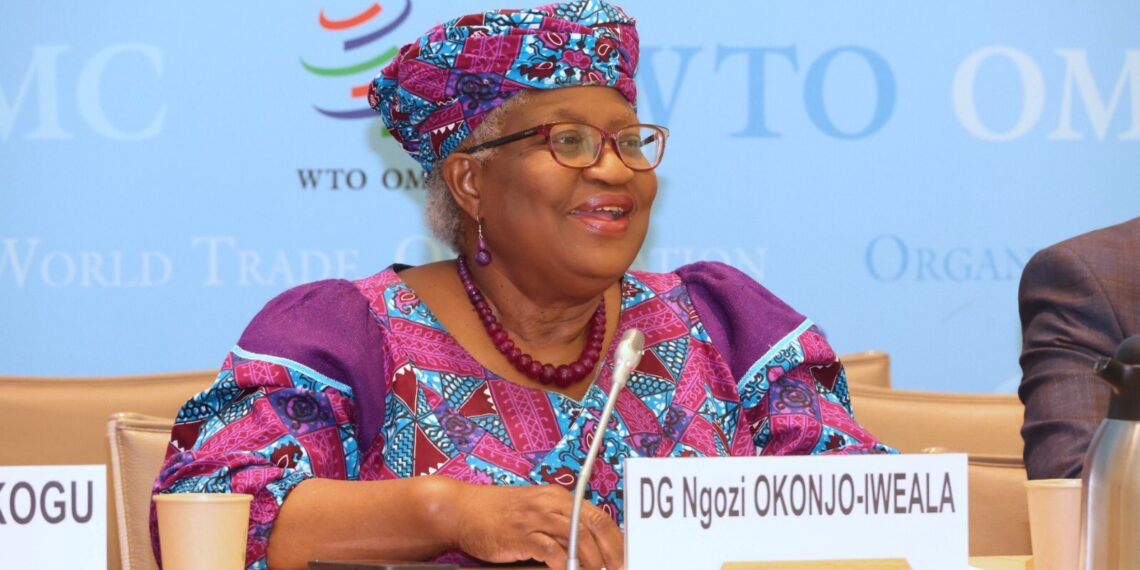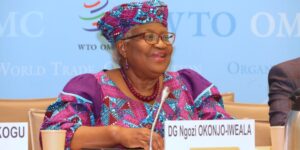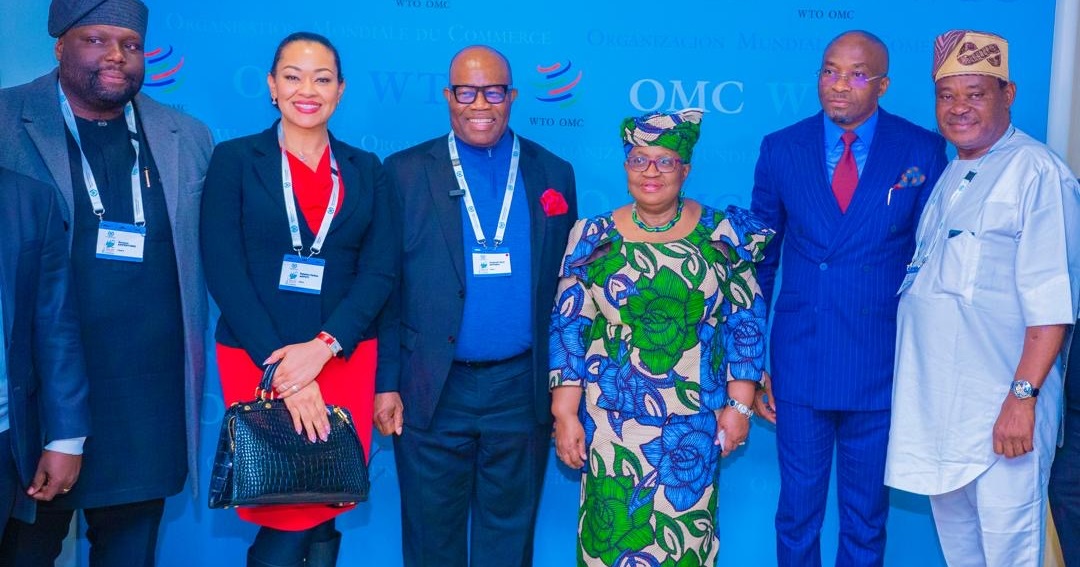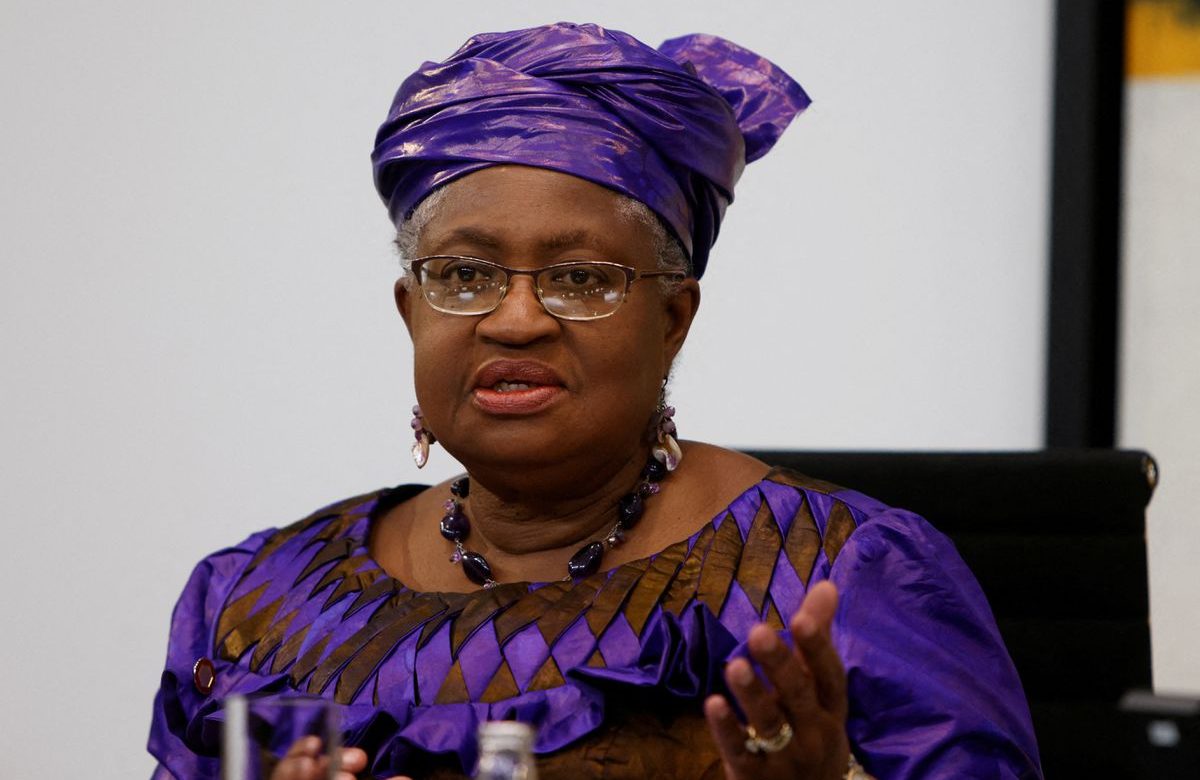
https://lisdel.org/fg-unveils-ube-school-improvement-programme/
- Economy
- No Comment
- 60

The Director-General of the World Trade Organization (WTO), Dr. Ngozi Okonjo-Iweala, has warned that the ongoing tariff war between the United States and China could result in a long-term contraction of nearly 7% in global real GDP, if the current trajectory continues.
In a statement issued on Wednesday, Dr. Okonjo-Iweala said the macroeconomic consequences of the escalating trade tensions will extend far beyond the two superpowers, with least developed countries (LDCs) among the hardest hit.
The negative macroeconomic effects will not be confined to the United States and China but will extend to other economies, especially the least developed nations. Of particular concern is the potential fragmentation of global trade along geopolitical lines. A division of the global economy into two blocs could lead to a long-term reduction in global real GDP by nearly 7%,” she stated.
The WTO chief expressed concern that a continuation of retaliatory tariffs and non-tariff barriers between the world’s two largest economies could lead to an 80% collapse in bilateral merchandise trade, triggering global trade disruptions and economic instability.
“The escalating trade tensions between the United States and China pose a significant risk of a sharp contraction in bilateral trade. Our preliminary projections suggest that merchandise trade between these two economies could decrease by as much as 80%,” she said.
Dr. Okonjo-Iweala noted that U.S.-China trade accounts for roughly 3% of total global trade. A breakdown in this relationship could therefore send ripple effects across supply chains and cause major distortions in global commerce.
“This tit-for-tat approach between the world’s two largest economies — whose bilateral trade accounts for roughly 3% of global trade — carries wider implications that could severely damage the global economic outlook. Our assessments, informed by the latest developments, highlight the substantial risks associated with further escalation,” she said.
Trade Diversion and Global Cooperation
The WTO also flagged the issue of trade diversion — a scenario where goods meant for one market are rerouted to others, potentially flooding local markets and displacing domestic production — as a growing concern.
“Moreover, trade diversion remains an immediate and pressing threat, one that requires a coordinated global response. We urge all WTO members to address this challenge through cooperation and dialogue,” Dr. Okonjo-Iweala added.
She stressed that the current climate underscores the urgency of preserving an open, rules-based international trading system, especially at a time when the world is grappling with inflationary pressures, supply chain vulnerabilities, and sluggish economic growth.
“It is critical for the global community to work together to preserve the openness of the international trading system. WTO members have agency to protect the open, rules-based trading system. The WTO serves as a vital platform for dialogue. Resolving these issues within a cooperative framework is essential,” she concluded.
Why This Matters
The statement from the WTO comes at a time when global economies are still reeling from post-pandemic economic shocks and geopolitical instability.
A prolonged tariff war between the U.S. and China could further dampen global growth prospects and derail fragile economic recoveries in emerging markets.
For Nigeria and other developing nations, the impact could manifest in reduced trade opportunities, lower foreign direct investment, and increased volatility in global commodity markets, especially for economies heavily reliant on exports.
By Olalekan Adigun
US-China tariff war could slash global real GDP by nearly 7% – Okonjo-Iweala





